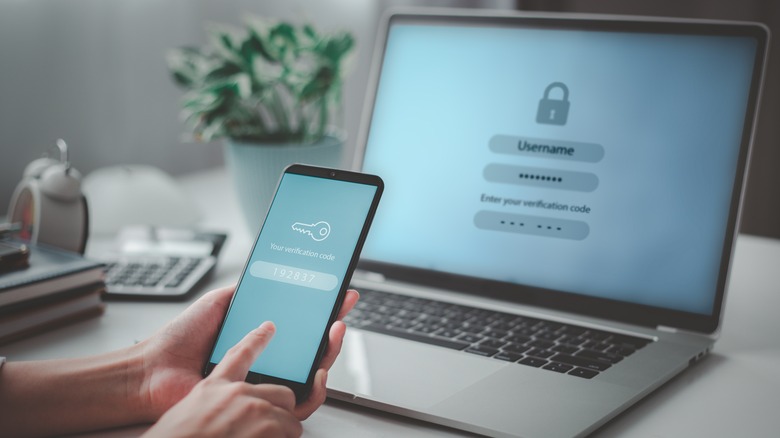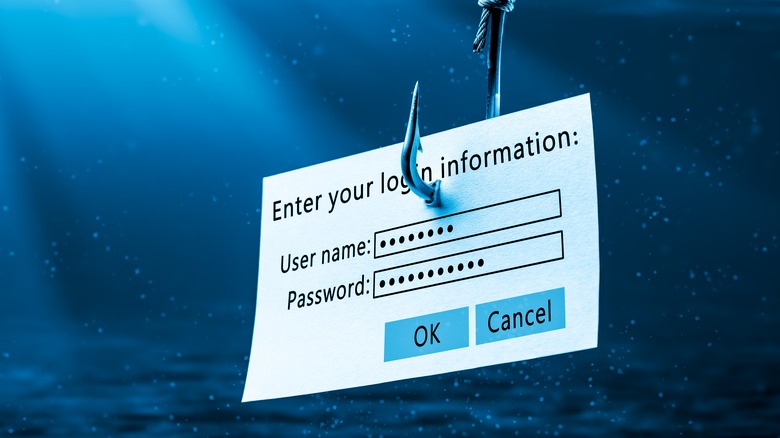4 Essential Privacy Tips Every Gamer Needs To Know
When it comes to protecting your privacy, the rules of the game changes constantly. As technology progresses, online scammers and predators have become increasingly smart with how they try to get your personal information. Often, one of the common ways they do so is by preying on people who expect it the least.
Playing games is one way many people escape their monotonous days, bond with friends, or simply have a good time. Unsurprisingly, gamers may have their guard down the most during those moments. In reality, gaming can open the flood gates to potential privacy issues, especially if you are the kind of gamer that streams or likes to make friends with strangers.
Because of the internet's transnational nature, it can be difficult for online scammers to be hunted and persecuted by the appropriate legal bodies. However, not all hope is lost: In 2016, Interpol announced the arrest of alleged ring leaders behind a global online scam network, which sets the precedent that international cooperation can help protect gamers and their privacy.
While there is a never-ending list of things that a gamer can do to keep themselves safe online, there are some essential tips that you shouldn't skip out on.
Improve account security
For gamers, protecting your privacy requires a holistic approach to security, especially because you're exposed to a variety of risks. As a gamer, you likely have a lot of cross-platform accounts, wherein your personal and financial information is linked.
With the rise of artificial intelligence, the average time it takes to brute force attack passwords has shortened tremendously. In 2023, Hive Systems claims that hackers can obtain your password almost instantly, even with numbers, upper and lower case letters, and symbols. Because of this, it's even more important to create strong passwords or use a password manager. Additionally, you should enable two-factor authentication (2FA) when possible.
Next, when playing new games, you may need to register for accounts. If possible, you can create a separate email for gaming-specific accounts, so you'll have less to worry about if it's compromised. Although some questions, such as your birthday, may be necessary to be able to prevent children from accessing mature rated content, things like your complete address or credit card information, may not.
Lastly, if you play mobile games, you should also regularly review the app permissions on your mobile phone. In some cases, some game developers will try to request information or data that isn't always necessary for gameplay. Often, this includes access to your files, photos, and even location. In this case, there's very little incentive for you to share it, so you might as well opt out.
Manage online profiles
While many influencers in the gaming niche make money by virtue of sharing their life, they often weigh out the privacy risks in exchange for however much they earn. However, even if you are in the business of using your personality and likeness to earn a living (or even just extra cash), you still need to be careful about what kind of information you post on social media.
Much of this is common sense, but you should always avoid revealing your precise location, regardless of where you are. Not to mention, unless it's part of your brand, you should also keep information like your full name or children's names off the internet. In fact, teaching the value of data privacy when they are young is integral to help protect children on the internet.
Even by accident, you could reveal information that can be useful for malicious intent; like potential password clues, identifying factors of your account or life, or even info related to password recovery. Things like your childhood home, pet's name, and other personal info can be used by hackers in worst-case scenarios.
In addition, it's important to help protect the privacy of the people around you. In general, it's important to ask for consent from people who may be occasionally featured on your public channels, such as your family members or friends. For ordinary people, it's not always worth the risk to reveal details of your life.
Avoid phishing scams
With so many games and not enough time to play them, many gamers sign up to mailing lists and newsletters to stay on top of news, promotions, and giveaways. In recent times, companies like Epic Games and Valve have launched real giveaways for their subscribers to thank them for being part of their communities.
Unfortunately, even legitimate communities can be victims of phishing scams, too. In 2019, Check Point Research and CyberInt claimed that a vulnerability in EA's system could have potentially affected over 300 million Origin users. In the same year, Fortnite had a similar security issue; wherein older subdomains were used to create phishing links to trick players and use their credit cards to buy in-game credits.
Aside from creating fake emails and sending users to legitimate-looking websites — where they can unknowingly input financial and personal information — Kapersky also notes that some other common online gaming scams include directing gamers to third-party websites. Gamers are often duped into purchasing in-game add-ones through this method, which don't show up on their account, and they're out of the money paid for those add-ons.
Alternatively, scammers also target gamers' IP addresses, where they can discover your physical address, complete name, and other sensitive information, which could be used to commit fraud or identity theft.
Play it safe (literally)
For many serious gamers, getting high speed internet at home is one of the first things on your list to get the best gaming experience. Unfortunately, you can't take it with you when traveling, leaving many gamers itching for a stable connection. While it can be difficult, there are some behaviors you definitely should avoid while you're on public Wi-Fi, especially because hackers can use it to steal your personal information.
An unsafe Wi-Fi network can mean a lack of encryption, which can reveal everything from your bank account to your social media log-in details if a hacker gets access. Aside from this, it's always good to decentralize your data, such as having separate emails for different things, not allowing cookies, and avoiding any unnecessary tracking on any of your devices.
If you're not playing from your home network, maybe avoid any microtransactions or purchasing add-ons if you can help it. Playing games on public networks is perfectly serviceable, and often encouraged in places like internet/gaming cafes where plenty of players head to when they need to scratch the competitive edge. Just be careful with what you're logging into — especially if you're using a public gaming computer that many people access daily.
When done right, gaming can remain an integral part of your life with minimal risks to your privacy. While it can appear like a hassle at first, practicing good online privacy hygiene can help protect not just you, but also the people around you.




